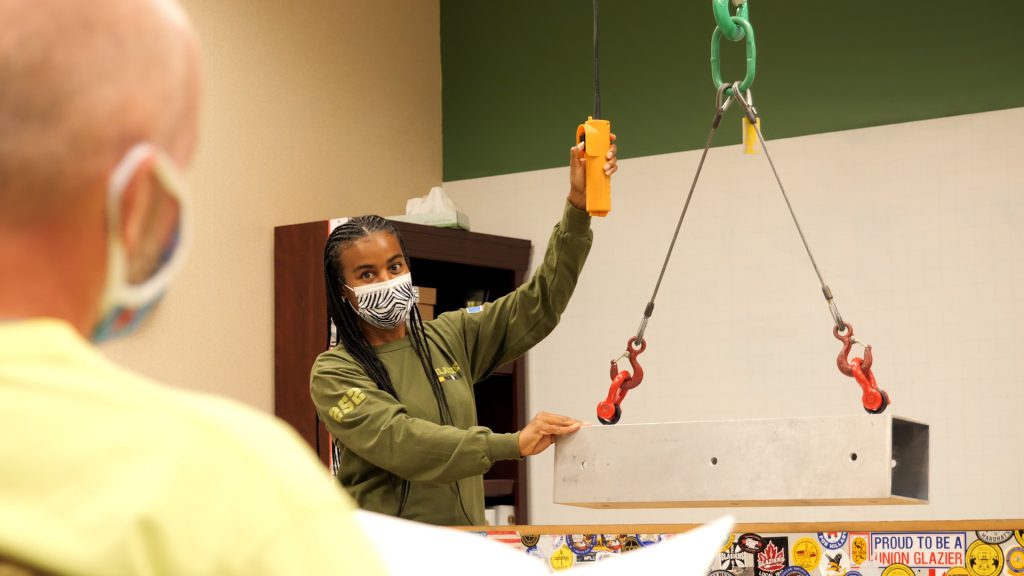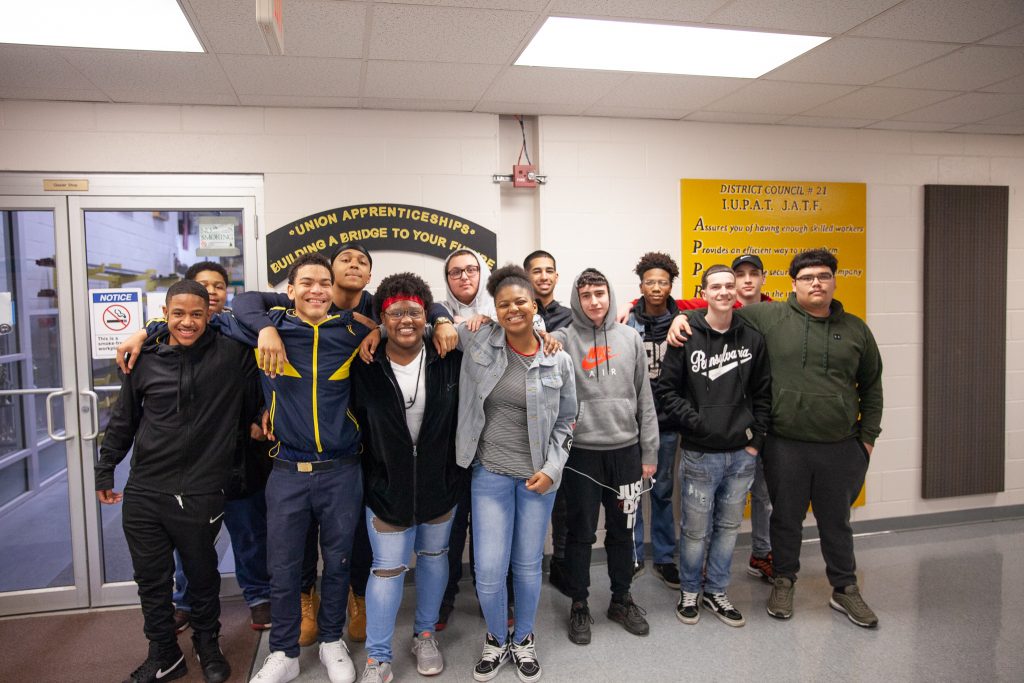Published here on WHYY – November 10, 2020

When Tureka Dixon was working in payroll at a construction company, she realized the money she could make by turning in her blazer for a hard hat. She found her way to the Painters Union glaziers apprenticeship program in Philadelphia, where she was paid to learn and work on a job site. Now a mother of two, Tureka has a 401(k), a pension, and a benefits package that covers things like her hospital stay for her second child’s birth and her son’s braces.
This is National Apprenticeship Week (November 8-14), a week to recognize the impact of apprenticeships on individuals, employers and the economy. For decades, union apprenticeships have provided a debt-free path to family-sustaining careers. Now, as our state and the nation prepare for a Joe Biden presidency, union apprenticeships will be more important than ever in getting Americans back to work.
Biden’s “Build Back Better” plan will create millions of jobs focused on rebuilding America’s crumbling infrastructure, which was given a “D+” rating by the American Society of Civil Engineers. There’s no better way to get Americans back to work than union apprenticeships in the building trades to rebuild our critical infrastructure like roads, bridges, schools and hospitals.

Apprenticeships provide critical career paths for young people, providing a debt-free education and job placements with local employers, unlike a traditional college. As the collective student debt owed by American students passes $1.5 trillion, young people need alternative paths to rewarding, high-paying careers. And apprentices aren’t the only ones who benefit from programs like these. These programs give employers access to a highly skilled workforce trained in industry-leading techniques and safety to support their bottom lines.
For example, students at the Finishing Trades Institute – the training arm of District Council 21 – accrue zero debt as part of our earn-as-you-learn model and are promised 100% job placement if they complete the program. An accredited technical community college, the FTI confers its own associate’s degree, and students can also pursue bachelor’s degrees through agreements with a number of local institutions in the Philadelphia area like Penn State, Jefferson, Rutgers, and Rowan.
The FTI also works with high school students throughout Greater Philadelphia to show the benefits of vocational training and pursuing a career in the construction industry. For many high schoolers, the cost of universities makes higher education seem like an impossible goal. Through mentorship, scholarships, and hands-on training, the FTI is showing the next generation that a college degree and a high-paying job are possible for all. Graduates of the program earn more than $70,000 a year on average, with annual increases.
As our nation gets back to work under these new federal plans, National Apprenticeship Week highlights how apprenticeship programs can bolster our economy and help workers earn an income while learning in-demand skills to guide them in the recovering economy. And even before COVID-19, the need for newcomers to the building trades was high, with construction and engineering certificates leading to careers with wages as high or higher than many bachelor’s degrees, according to Georgetown University’s Center on Education and the Workforce.
But, according to the U.S. Department of Labor, the U.S. still lags behind other countries like Germany, Switzerland, and the U.K. in terms of industries’ utilization of the apprenticeship training model, even though it’s anticipated that nearly 30% of all jobs by 2020 will require a post-secondary degree or credential. Experts also project a shortfall of nearly 3 million Americans lacking the post-secondary education required to fill these jobs.

Through her apprenticeship program, Tureka was able to earn both an associate’s degree and a Bachelor’s in Construction Management. Now a part-time instructor with the FTI, Tureka teaches the next generation of workers entering the trades.
“I’m able to relate to them because, of course, I was once in their spot,” Tureka told me recently. “And knowing that I’m helping newcomers achieve what I’ve achieved – a career that supports my family, with benefits that will allow me to retire comfortably – is the best feeling.”
It’s time for us to catch up with the world’s other leading industrialized nations. When we talk about getting Pennsylvanians back to work, we must do so with an eye towards the future – the future of our cities and towns, but also the futures of the working people building them. During National Apprenticeship Week, let’s celebrate the apprenticeship programs that are allowing our employers, communities, and workers to come back stronger than ever.
####
Joe Ashdale is the Business Manager/Secretary-Treasurer of IUPAT District Council 21.

